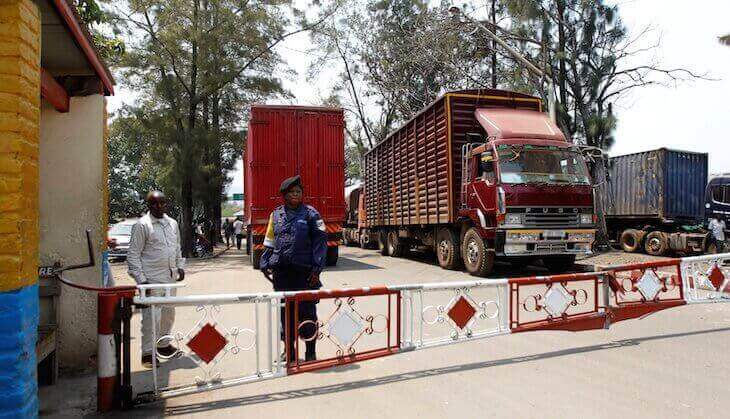Despite being major economic drivers, many small and medium sized women traders in Africa face numerous challenges. Many of them operate informally and are inadequately supported to take maximum advantage of opportunities of formal cross-border trade in high value products. Empowering such traders through targeted interventions is bearing substantial gains through jobs creation and improved incomes from exports of high-quality value-added products. Recently, a group of small and medium-sized women traders in Kenya who are part of TradeMark East Africa (TradeMark) Women in Trade Programme recounted their experiences, opportunities, and challenges they face in their involvement in trade during a meeting held at the Irish Ambassador’s residence in Nairobi. They also highlighted some of the impacts of the interventions.
TradeMark CEO David Beer and Ambassador of Ireland to Kenya Fionnuala Quinlan, graced the occasion. The Women in Trade Programme seeks to strengthen the capacity of women traders to increase their incomes and reduce their vulnerability to exploitation and harassment across the East Africa Region. The total funding to the programme across Eastern Africa stands at US$9.5 million, with support from the Netherlands, Canada, Denmark, the European Union and Ireland. By end of October 2022, the programme had impacted over 107,824 women cross border traders, set up information centres across 14 border crossing points in the region and built capacity of 3,500 women led SMEs to link them to markets.
In Kenya, TradeMark is implementing this initiative with Partner Africa, TruTrade and Sauti East Africa. Among other interventions, The Ireland Embassy in Kenya has been a big supporter the work with SMEs to enable target beneficiaries access export markets. The following are the traders’ success stories.
Lillian Ochieng, Director of Frelin Fresh, an exporter of fresh fruits and vegetables, attests to the benefits of the business management skills she gained and the support she received to acquire an avocado export Global GAP certification, which seeks to ensure food safety standards are adhered to. “The certification has enabled us to penetrate the European market, and this has so far seen us almost double our revenues in 2022 compared to last year,” she said. Frelin Fresh also exports agricultural produce to the Far East, Middle East and South Africa.
Irene Mumo, who runs Mke Organics, an integrated agribusiness firm, recently received her export certificate, with her core market being China. “We are now Global GAP certified thanks to the facilitation of TradeMark East Africa and Partner Africa. We are now getting into value addition which will enable us fetch better prices for our produce,” she pointed out. Her firm exports chilli, capsicum and avocados. “We have also started working on avocado oil processing, alongside production of chilli, onion, straw berry and tomato powders. We are also venturing into value added dairy production.”
For Lilian Bitok, who runs GavoFoods International, the outbreak of the COVID-19 pandemic almost ended her business, which now deals in gluten-free flour production. “COVID-19 had paralysed my operations due to the restrictions that came with it, and I didn’t know much about marketing my products online,” she said. “The training on digitisation opened my business to a whole new world and I was able to survive by serving orders that emanated from online platforms.” The training Lilian is referring to was supported by TradeMark through Kenya Private Sector Alliance.
The potential for the export market is huge. However, to take full advantage of this opportunity, the traders highlighted financial constraints to invest in large scale agro-processing equipment to meet the growing demand, especially for nutrient-dense, healthy fruits and vegetables in the export market.
“Our partners have done a really good job by bringing together different segments of the businesses that we support, and the results are very encouraging. The only way we can succeed is by continuing to work together,” Mr. Beer remarked.


